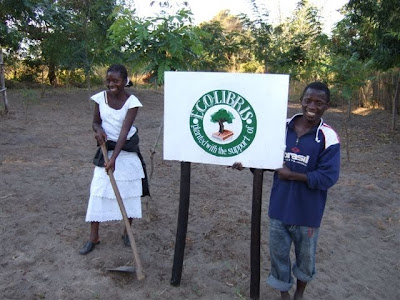 Do you think that sustainability is a journey? Do you believe that small actions lead to big change? If you do, we invite you to join us on our journey to make reading more sustainable and plant trees for the books you read, write or publish.
Do you think that sustainability is a journey? Do you believe that small actions lead to big change? If you do, we invite you to join us on our journey to make reading more sustainable and plant trees for the books you read, write or publish. How we do it?
Planting trees to balance out paper used for books
Eco-Libris is offering book readers, as well as publishers and authors the opportunity to balance out the trees cut down for the production of books by planting trees in developing countries.
We work to plant these trees together with our planting partners – three highly respected US and UK based non-profit organizations that work in collaboration with local communities in developing countries to plant these trees. These trees are planted in high ecological and sustainable standards in Latin America (

Readers also receive a sticker made of recycled paper for every book they balance out saying “One tree planted for this book”, which they can later display on their books’ sleeves.
So far Eco-Libris balanced out over 176,000 books, which results in more than 196,000 new trees planted with its planting partners in developing countries.
 Promoting adoption of sustainable practices in the book industry
Promoting adoption of sustainable practices in the book industry
One of the examples of our work to promote sustainability in the book industry is our Green Books Campaign: Every year in the last couple of years (2009 and 2010), on Nov. 10 at 1 p.m., hundreds of bloggers simultaneously have published reviews of books printed on recycled or FSC-certified paper. By turning a spotlight on books printed using greener methods, we aim to raise consumer awareness about considering the environment when making book purchases.
Last year about 200 bloggers reviewed 200 books that came from 56 publishers from the U.S., Canada, Australia, and the U.K. This diverse group of publishers participating in the campaign included both small and large presses who print books on recycled and/or FSC-certified paper, such as Penguin Group, Scholastic, Barefoot Books, McClelland & Stewart, Simon and Schuster Children’s Publishing, Sterling Publishing, DK Publishing, Harvard Business Press, Island Press, North Atlantic Books, McGraw-Hill, ABRAMS and Picador.
This unique campaign is transforming into a tradition and we are glad to see continuous enthusiasm about it from publishers, authors, bloggers and readers (we estimate that last year about 40,000 people were exposed to the campaign) alike.
We plan to keep this tradition going this year as well – This year’s campaign, just like last year, will take place in collaboration with Indigo Books & Music, the largest book retailer in Canada, as part of their efforts to eliminate the use of wood fiber from endangered forests and facilitate a broader sustainability shift in the publishing and paper supply chain.
 Helping to make e-reading greener
Helping to make e-reading greener
eBooks are becoming an important part of the book industry and we try not just to find what does it means in terms of the industry’s carbon footprint or how sustainable e-reading is in comparison with paper books, but also to make an impact and help making e-reading greener.
One of our latest efforts is helping Calvert Investments, one of the largest sustainable and responsible investment (SRI) companies in the US to file a shareholder resolution with Amazon.com, calling the company to prepare a report that will assess the impact of climate change on Amazon, including disclosure on the Kindle’s environmental impacts, or in other words – finally making the carbon footprint of the Kindle public.
We feel this is a necessary step not only to learn what the carbon footprint of the Kindle is, but also to move forward other e-reader sellers, such as B&N and Sony to reveal their carbon footprint. If we want e-reading to be a truly green option, we must have transparency and given Amazon’s refusal to provide such data, we’re proud on being part of the efforts to convince them to do the right thing!
So, if you want to join our journey, you’re more than welcome to do it by planting trees for your books – we welcome readers, authors and publishers to join us and make reading more sustainable!
Yours,
Raz @ Eco-Libris





